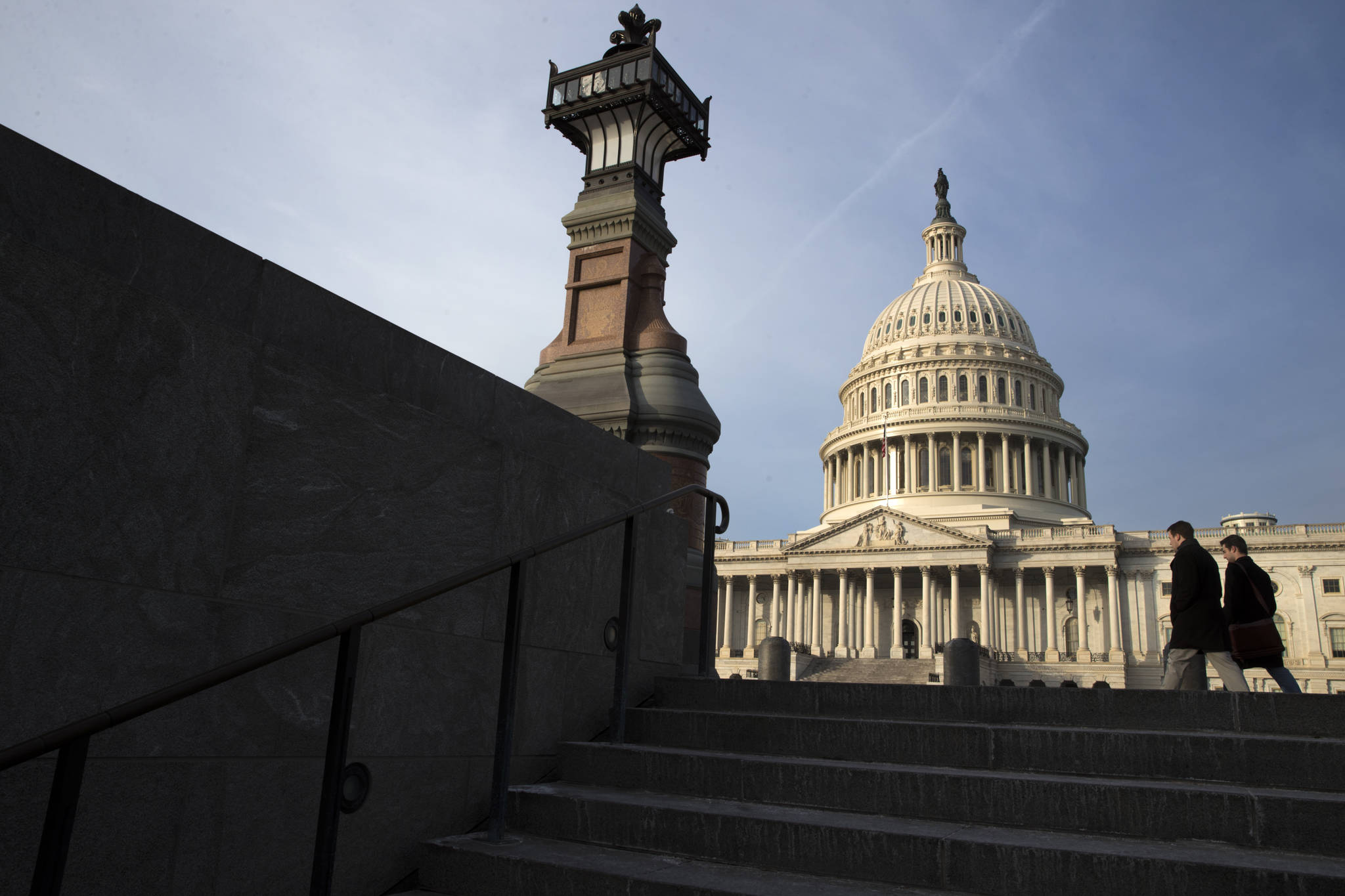Despite the ‘no’ votes of Alaska’s Congressional delegation, Congress has passed a measure extending the federal government’s warrantless wiretapping program for six more years.
The U.S. Senate voted 65-34 on Thursday to approve the program, and that action followed a 256-164 vote in the U.S. House on Nov. 11. The votes put the measure on the desk of President Donald Trump, and he is expected to sign it.
Congressional action came at a critical deadline: Without reauthorization before midnight Saturday morning, the program would have ended. Thursday’s vote in the Senate followed a far-closer procedural vote earlier in the week that passed by a single vote. Sen. Lisa Murkowski, R-Alaska, and Sen. Dan Sullivan, R-Alaska, voted no.
Had that procedural motion failed, the bill likely would have died. Instead, with Democratic support, it advanced to Thursday’s conclusion.
Murkowski and Sullivan again voted “no” on Thursday.
The bill deals with a section of the Foreign Intelligence Surveillance Amendments Act that was passed by Congress in 2008, before the election of President Barack Obama. That section allows the National Security Agency to collect the email and other communications of Americans who talk with selected people outside the United States. No warrant is needed for this collection.
In a prepared statement for the Empire, Murkowski explained her “no” vote: “I cannot support a long-term extension of Section 702 of the Foreign Intelligence Surveillance Act without the opportunity to consider amendments to ensure that Section 702 adequately protects the interest of US citizens in the privacy of their communications. We should be able to achieve national security objectives in a manner consistent with the Constitution’s promise that Americans will not be subject to unreasonable searches and seizures.”
The House vote was also not along party lines: Libertarian-minded Republicans hotly opposed it, and it passed the House only because many Democrats supported it.
Rep. Don Young, R-Alaska, voted against the final measure and in favor of an amendment that would have replaced the reauthorization bill with one that would have required the federal government to obtain a warrant before seeking the communications of Americans. Ordinarily, federal investigations are required to obtain a warrant before beginning to wiretap conversations between two Americans within the national borders.
• Contact reporter James Brooks at james.k.brooks@juneauempire.com or call 523-2258.

